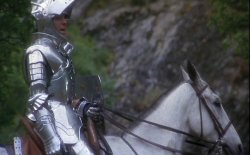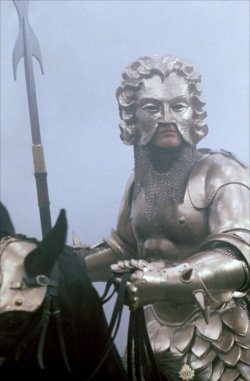- Sep 22, 2013
- 4,956
- 250
- 85
If you are an advocate or scholar of republicanism (the form of government that favors rule by the people through civil procedure and includes in its arena various styles of governance such as socialist democracy), then you might consider how the modern age of consumerism-catalyzed globalization (i.e., eTrade) favors a high-speed version of culture contact and craft exchange and how such a version is conducive to discussions about totem cross-referencing. Totem cross-referencing seems to affect the modes of dialogue surrounding republicanism; I'm referring to the Platonic idea of a 'Great Republic,' of course, and not the American Republican political party of Ronald Reagan.
For example, the Statue of Liberty was given to the United States by France as a gift, and today, it represents America's brand of immigration-welcomed capitalism (i.e., the American Dream). The State of Liberty is not only a culture totem but also an economics totem.
This libertine ability to cross-reference culture totems suggests that modern age mercantilism tycoons such as Bill Gates (of Microsoft) and Steve Jobs (of Apple Computers) can be re-cast as capitalism diplomats of 'culture totem storyboarding.' Such a trend favors revisionist theories in history, which perhaps explains the social popularity of relevant history books such as "A People's History of the United States" (Howard Zinn).
Does this suggest that the populism-festive American comic book avatar Green Arrow (DC Comics), a super-archer who monitors urban traffic frailties, is America's version of Robin Hood?
Such 'creative' history storytelling has a rich tradition of course. If we examine the fabled English kingdom of Camelot, we see that it was afforded a sort of intellectual intrigue with the controversial Camelot knight Lancelot and the incendiary Camelot challenger Mordred. Creating fancy tales about Lancelot and Mordred battling to illuminate the humanist/populist proportions of Camelot should motivate modern age historians to come up with equally fancy tales about Steve Jobs and Bill Gates battling in the consumer computer market to illuminate the humanist/populist proportions of the new world market.
There is a danger, however, since adding sentiment to historic events creates tones of unscholarly personalization.
"I, Lancelot (Steve Jobs) forbid you, Mordred (Bill Gates) to cross this boundary which marks the sovereignty of Camelot."
"And I, Mordred (Bill Gates), contest that such a boundary could only be defended by the likes of you, Lancelot (Steve Jobs) --- a human-melodramatic mercenary. Nevertheless, the defense of this boundary will prove that republicanism is a competitive market."

Pirates of Silicon Valley (Film)



For example, the Statue of Liberty was given to the United States by France as a gift, and today, it represents America's brand of immigration-welcomed capitalism (i.e., the American Dream). The State of Liberty is not only a culture totem but also an economics totem.
This libertine ability to cross-reference culture totems suggests that modern age mercantilism tycoons such as Bill Gates (of Microsoft) and Steve Jobs (of Apple Computers) can be re-cast as capitalism diplomats of 'culture totem storyboarding.' Such a trend favors revisionist theories in history, which perhaps explains the social popularity of relevant history books such as "A People's History of the United States" (Howard Zinn).
Does this suggest that the populism-festive American comic book avatar Green Arrow (DC Comics), a super-archer who monitors urban traffic frailties, is America's version of Robin Hood?
Such 'creative' history storytelling has a rich tradition of course. If we examine the fabled English kingdom of Camelot, we see that it was afforded a sort of intellectual intrigue with the controversial Camelot knight Lancelot and the incendiary Camelot challenger Mordred. Creating fancy tales about Lancelot and Mordred battling to illuminate the humanist/populist proportions of Camelot should motivate modern age historians to come up with equally fancy tales about Steve Jobs and Bill Gates battling in the consumer computer market to illuminate the humanist/populist proportions of the new world market.
There is a danger, however, since adding sentiment to historic events creates tones of unscholarly personalization.
"I, Lancelot (Steve Jobs) forbid you, Mordred (Bill Gates) to cross this boundary which marks the sovereignty of Camelot."
"And I, Mordred (Bill Gates), contest that such a boundary could only be defended by the likes of you, Lancelot (Steve Jobs) --- a human-melodramatic mercenary. Nevertheless, the defense of this boundary will prove that republicanism is a competitive market."

Pirates of Silicon Valley (Film)



